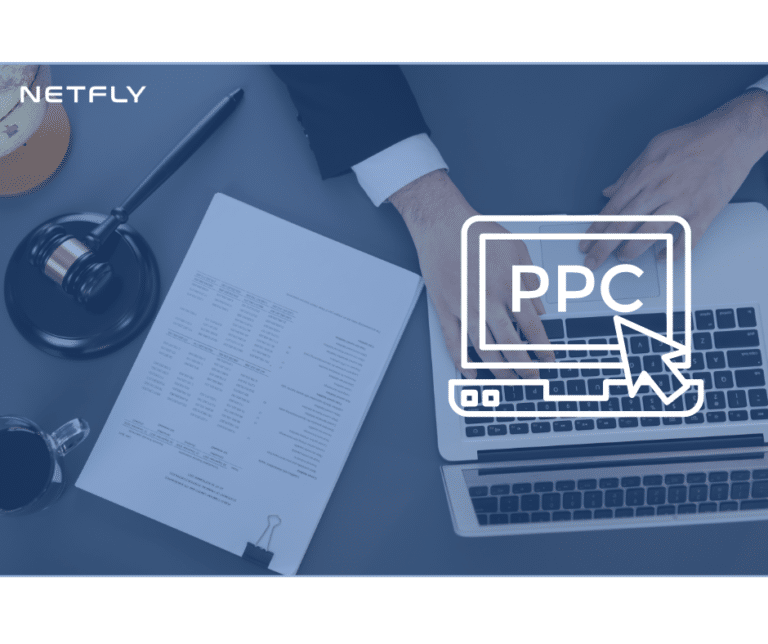When you’re looking to boost your personal injury law firm’s online presence, SEO marketing becomes crucial. It’s not just about ranking higher on search engines; it’s about making sure potential clients find you when they need legal help the most. From keyword research to local SEO strategies, there are several critical components to take into account. How do you guarantee that your website stands out in a crowded market? What specific tactics can you employ to attract more inquiries and conversions? Let’s break down the key elements that can elevate your practice to the next level.
Key Takeaways
- Conduct thorough keyword research to target relevant terms and improve search rankings.
- Optimize on-page elements like meta tags, header tags, and images for better SEO performance.
- Develop and maintain a content calendar to regularly publish informative and engaging blog posts.
- Build high-quality backlinks through legal forums, guest posts, and reputable directories.
- Optimize for local SEO by enhancing Google My Business listings and earning customer reviews.
Keyword Research
Conducting thorough keyword research is crucial for optimizing your personal injury attorney website and driving targeted traffic. Start by performing a detailed competitor analysis. This helps you identify the keywords your competitors rank for and the gaps you can exploit. Tools like SEMrush or Ahrefs can provide invaluable data on high-traffic keywords and phrases.
Understanding search intent is another vital step. Ask yourself, what are potential clients looking for? Are they searching for “best personal injury attorney” or “how to file a personal injury claim”? By pinpointing the specific needs and questions of your audience, you can tailor your content to match their search queries.
Use long-tail keywords to capture more specific search queries. For instance, instead of just “personal injury attorney,” try “experienced personal injury attorney in [Your City].” This narrows down the competition and targets users more likely to convert.
Don’t forget to analyze keyword difficulty and search volume. High-volume keywords are great, but if they’re too competitive, you might struggle to rank. Balancing these elements ensures you’re not only driving traffic but also attracting visitors who are more likely to need your services.
On-Page Optimization
To boost your personal injury attorney website’s visibility and ranking, on-page optimization involves meticulously refining each element on your web pages to align with targeted keywords and user intent. Start by making sure that your meta tags—title tags and meta descriptions—are optimized. These elements are vital as they provide search engines and users with a snapshot of your content.
Here are four essential on-page optimization tactics you should implement:
- Meta Tags: Craft compelling and keyword-rich title tags and meta descriptions. These should be unique for each page and include your target keywords to improve click-through rates (CTR) from search engine results pages (SERPs).
- Image Optimization: Use descriptive, keyword-focused file names for your images and include alt text to help search engines understand the content. This enhances your site’s accessibility and can improve your ranking in image search results.
- Header Tags: Organize your content with H1, H2, and H3 tags to make it more readable for users and search engines. Use primary keywords in your headers to signal the structure and relevance of your content.
- Internal Linking: Create a robust internal linking structure to help users navigate your site and distribute page authority. Link related articles and practice areas to enhance user experience and keep visitors engaged.
Implementing these strategies will ensure your website is well-optimized, making it easier for potential clients to find you.
Content Strategy
A sturdy content strategy is crucial for personal injury attorneys aiming to attract and convert potential clients through data-driven, keyword-focused, and user-centric content. Start by developing a detailed content calendar that outlines your publishing schedule. This calendar guarantees you consistently produce fresh, relevant content that keeps your audience engaged.
Your content should address common questions and concerns potential clients may have. By focusing on topics that resonate with your target audience, you’ll increase audience engagement and drive more qualified traffic to your site. Use data analytics to identify high-performing keywords and integrate them naturally into your content to improve your search engine rankings.
Regularly updating your blog with informative articles, success stories, and legal advice can position you as an authority in personal injury law. Make sure to include calls to action that guide visitors towards contacting you for a consultation.
Monitoring metrics like page views, time spent on page, and conversion rates will help you refine your strategy. By continuously optimizing your content based on these insights, you can create a more effective, user-centric content strategy that boosts your online visibility and client acquisition.
Link Building
To boost your personal injury attorney SEO, focus on securing high-quality backlinks from reputable sources. Utilize local business directories and explore guest blogging opportunities on industry-relevant sites. These strategies can enhance your search rankings and drive targeted traffic to your website.
High-Quality Backlink Sources
Building high-quality backlinks is essential for boosting your personal injury attorney website’s search engine rankings and online visibility. Effective link building can drive targeted traffic, increase your domain authority, and improve your site’s credibility. To achieve this, you need to focus on obtaining backlinks from reputable sources. Here are some prime areas you should consider:
- Legal Forums
Participate actively in legal forums where attorneys and legal experts congregate. By offering valuable insights and engaging in discussions, you can earn backlinks to your site. Make sure your contributions are helpful and relevant to personal injury law. - Guest Blogging
Write guest posts for well-known legal blogs and industry websites. This not only showcases your expertise but also provides you with high-quality backlinks. Make certain your content is excellent and addresses common personal injury questions. - Social Media
Utilize social media platforms to share your content and connect with other legal professionals. Engaging on platforms like LinkedIn can lead to opportunities for backlinks from profiles and shared content. - Press Releases
Distribute press releases about major cases or milestones in your practice. Use reputable press release distribution services to gain backlinks from news outlets and legal news sites.
Local Business Directories
When aiming to boost your personal injury attorney website’s SEO, don’t overlook the power of local business directories for acquiring high-quality backlinks. Local business directories are invaluable for enhancing your online presence and driving targeted traffic to your site. By listing your business in these directories, you can tap into niche directories that cater specifically to legal services, increasing your website’s visibility among potential clients.
To maximize the benefits, focus on creating complete and accurate listings. Include your business name, address, phone number, and a link to your website. Consistency in these details across all directories improves your local SEO ranking. Additionally, encourage satisfied clients to leave customer reviews on these platforms. Positive customer reviews not only build credibility but also contribute to higher search engine rankings.
Data shows that businesses with a strong presence in local business directories and numerous positive customer reviews tend to rank better in local search results. This means more potential clients finding your services when they need them most. Prioritize listing your personal injury attorney practice in reputable niche directories and solicit genuine customer reviews to gain a competitive edge in your local market.
Guest Blogging Opportunities
While utilizing local business directories is important for local SEO, guest blogging opportunities offer another powerful method for acquiring high-quality backlinks and enhancing your personal injury attorney website’s visibility. By contributing valuable content to reputable websites in your industry, you can build authoritative links that boost your search engine rankings.
Here are four steps to effectively leverage guest blogging:
- Identify High-Authority Websites: Focus on websites within the legal niche or related fields. Legal forums and blogs associated with industry conferences are excellent starting points.
- Pitch Relevant Topics: Propose topics that address common legal challenges or trending issues in the personal injury sector. Make sure your content is informative and aligns with the host site’s audience.
- Create Quality Content: Write in-depth, data-driven articles that provide actionable insights. High-quality content is more likely to be shared and linked back to, enhancing your SEO efforts.
- Engage with the Community: Actively participate in legal forums and industry conferences. Building relationships with other professionals can open doors to more guest blogging opportunities.
Local SEO
For personal injury attorneys, local SEO is crucial for attracting nearby clients who are actively seeking legal assistance. You’ll want to start by optimizing your Google My Business listing. This free tool allows you to manage how your firm appears on Google Search and Maps. Make sure that your business name, address, and phone number (NAP) are consistent across all online platforms.
Next, focus on gathering customer reviews. Positive reviews not only build credibility but also improve your ranking in local search results. Encourage satisfied clients to leave reviews and respond to them promptly to show you value their feedback.
Local SEO doesn’t stop at Google My Business and customer reviews. You should also optimize your website for local keywords. Include location-specific terms like ‘personal injury attorney in [Your City]’ throughout your site. This helps search engines understand your service area, making you more visible to local searchers.
Additionally, local backlinks from reputable websites in your area can boost your local SEO. Partner with local businesses or sponsor community events to earn these valuable links.
Performance Tracking
Tracking the performance of your SEO efforts is essential to understanding what’s working and where you need to make adjustments. By focusing on traffic analysis and conversion metrics, you can fine-tune your strategy to maximize your marketing ROI. Here’s how to effectively track your SEO performance:
- Google Analytics: Use this tool for thorough traffic analysis. Monitor organic traffic to see which keywords and pages are driving the most visitors to your site.
- Conversion Rate: Track conversion metrics to measure the percentage of visitors who take desired actions, such as filling out a contact form or calling your office. This helps you gauge the effectiveness of your landing pages and calls-to-action.
- Keyword Rankings: Regularly check your keyword rankings to see how well your site is performing in search engine results. Higher rankings typically lead to increased traffic and conversions.
- Bounce Rate: Analyze the bounce rate to understand how engaging your content is. A high bounce rate may indicate that your content isn’t meeting visitors’ needs, requiring a content strategy reassessment.
Frequently Asked Questions
How Can Social Media Impact My Personal Injury Attorney SEO Efforts?
Social media boosts your SEO by increasing content sharing and social engagement. When users engage with and share your content, it signals search engines that your site offers valuable information, improving your search rankings and online visibility.
What Role Do Online Reviews Play in Personal Injury Attorney Marketing?
Online reviews play an essential role in client testimonials, reputation management, and establishing trust. They enhance credibility, build client trust, and influence potential clients’ decisions. Positive feedback boosts your online presence, making your services more appealing.
How Can I Improve My Website’s User Experience for Potential Clients?
To enhance your website’s user experience, prioritize website speed and mobile optimization. Achieve fast load times and a mobile-friendly design. This strategy improves usability and keeps potential clients engaged, ultimately enhancing satisfaction and conversions.
Is It Beneficial to Invest in Paid Advertising for Personal Injury Attorneys?
Yes, it’s beneficial to invest in paid advertising. Proper budget allocation and precise ad targeting enhance visibility and client acquisition. Data-driven strategies guarantee you reach the right audience, maximizing ROI and client conversions effectively.
How Do Search Engine Algorithms Affect Personal Injury Attorney SEO Rankings?
Imagine a bustling digital marketplace; search engine algorithms are the gatekeepers. They prioritize your keyword research and content optimization, impacting your SEO rankings. Fine-tune your strategy to guarantee your content stands out in this crowded space.
Conclusion
In the world of personal injury attorney SEO marketing, think of your strategy as a well-oiled machine. By conducting thorough keyword research, optimizing on-page elements, crafting valuable content, building robust backlinks, and honing local SEO tactics, you can drive your firm’s visibility and client inquiries. Keep tracking performance metrics to fine-tune your approach. Like a finely tuned engine, a data-driven, user-centric strategy will propel your firm towards sustained growth and success.










